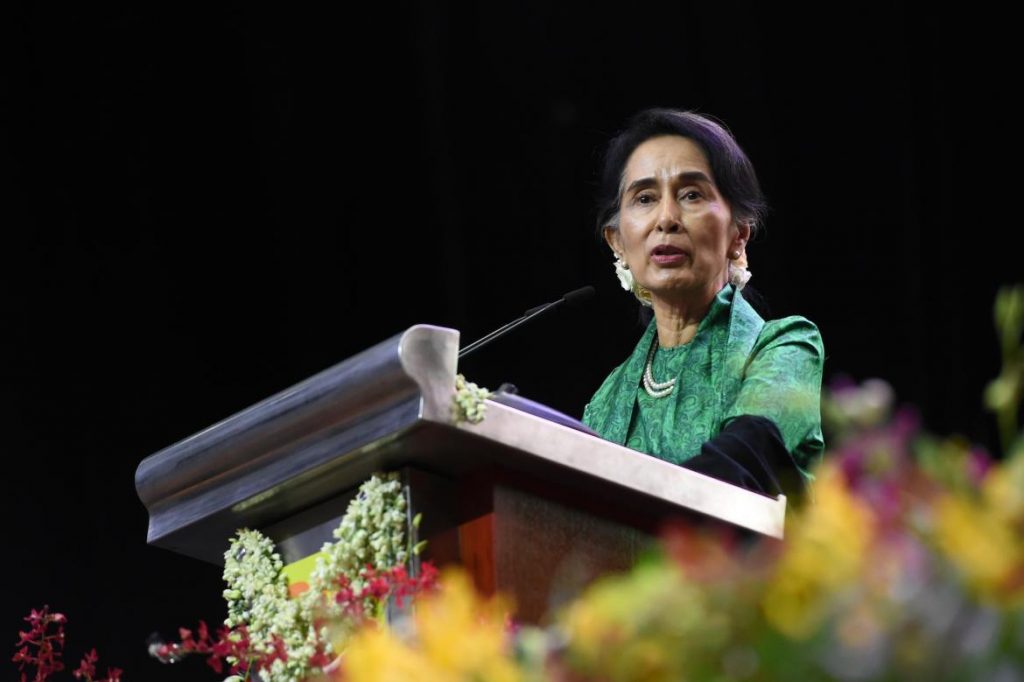State Counsellor Daw Aung San Suu Kyi has accused the international community of exacerbating communal tensions in Rakhine State by “always” seeking to stoke resentment.
In an interview on Channel News Asia in Singapore on December 2 at the end of a visit to the city-state, the Nobel Peace laureate also said the government had managed to bring the situation in northern Rakhine under control and to “calm it down”.
She noted that attacks by militants in October had triggered the massive security operation in the Muslim-majority area that has led to accusations of human rights abuses.
“I would appreciate it so much if the international community would help us to maintain peace and stability, and to make progress in building better relations between the two communities, instead of always drumming up cause for bigger fires of resentment,” Aung San Suu Kyi told the state-owned broadcaster.
“It doesn’t help if everybody is just concentrating on the negative side of the situation, in spite of the fact that there were attacks against police outposts,” she said.
Support more independent journalism like this. Sign up to be a Frontier member.
The operation launched after the October 9 attacks in which nine Border Guard police died has led to accusations against the security forces of extrajudicial killings, mass rape and the torching of houses, all of which have been denied by the government and the military.
At least 86 civilians have died, about 10,000 have fled to neighbouring Bangladesh and the distribution of humanitarian aid halted in northern Rakhine, which has been closed to outsiders.
“In the Rakhine, it’s not just the Muslims who are nervous and worried,” Aung San Suu Kyi told Channel News Asia. “The Rakhine are worried too. They are worried about the fact that they are shrinking as a Rakhine population, percentage-wise,” she said.
Ethnic Rakhine protesters greeted a nine-member commission headed by former United Nations secretary-general Mr Kofi Annan when it arrived in the Rakhine State capital, Sittwe, on December 2 to begin a second visit to the state.
Some protesters carried signs calling for the banning of the commission, which has six Myanmar and three foreign members.
The government appointed the advisory commission in August to help heal sectarian divisions in Rakhine, where tensions have simmered since scores died in violence in 2012.
On December 1, the government announced the appointment of a 13-member commission to investigate the background to the October 9 attacks and the allegations of human rights abuses in the military crackdown.
Activists have questioned whether the commission, which has no Muslim members and is headed by Vice President U Myint Swe, a hardline retired general, will be capable to being independent or impartial.







